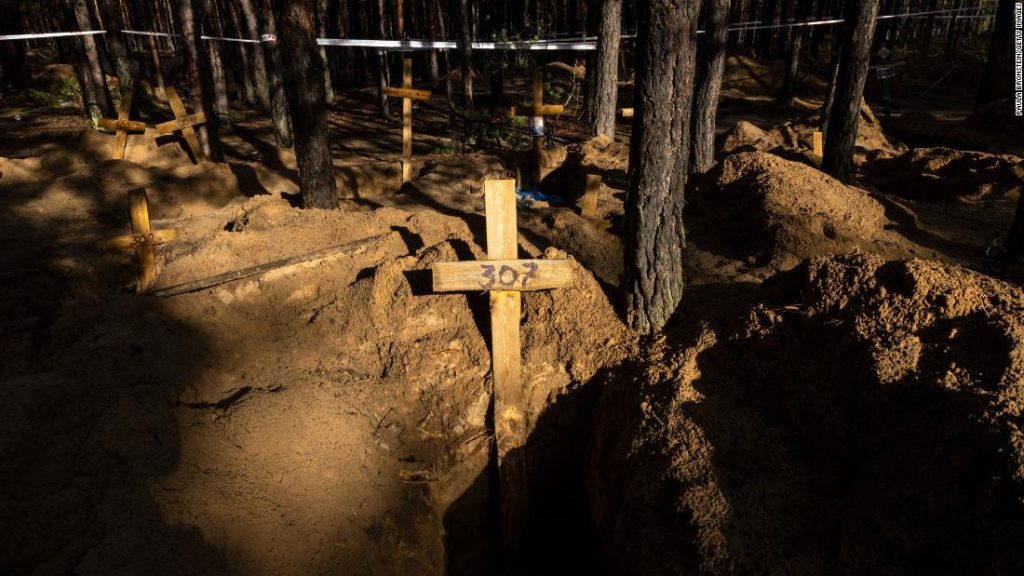
In a harrowing reminder of the human cost of the Russian invasion, most of the bodies showed signs of violent death, said Ole Sinihopov, head of the Kharkiv region’s military administration.
“There are corpses with a rope around their neck, hands tied, limbs broken, and gunshot wounds. Several men had their genitals amputated,” Sinihopov said in a Telegram post on Friday.
All this is evidence of the horrific torture inflicted on the residents of Izium by the occupiers.”
Sinihopov added that most of the bodies were civilians and only 21 were military.
Izyum, located near the border between the Kharkiv and Donetsk regions of Ukraine, came under intense Russian artillery attacks in April before it was occupied. It then became an important center for the invading army during the five months of occupation.
While the Ukrainian offensive succeeded in reclaiming thousands of square miles of territory, it also revealed evidence of the atrocities suffered by civilians and soldiers at the hands of Russian forces.
This is not the only mass grave that has been discovered, Sinihopov said. He said that there are at least three others in the other liberated areas of the Kharkiv region.
He added that each of the bodies found had a separate story, and vowed to find out the circumstances of each death “so that their relatives and friends know the truth and the killers are punished.”
“All the crimes of the occupiers will be documented, and the perpetrators will pay for what they did,” Sinihopov said.
He thanked the 200 people – including forensic experts, police officers and state emergency service employees – who worked there every day for their “morally challenging but necessary work”.




More Stories
Journalists convicted in Hong Kong sedition case
Stand News: Hong Kong journalists convicted of sedition in case critics say highlights erosion of press freedom
Shark decapitates teen off Jamaica coast